

We may earn revenue from the products available on this page and participate in affiliate programs. Learn More ›
Home Advice You Can Trust
Tips, tricks & ideas for a better home and yard, delivered to your inbox daily.
Dishwashers save us a tremendous amount of time and labor, but this convenience comes with a few big downsides. High water temperature can damage your dinnerware, as can the corrosive alkalies, bleaches, and other chemicals in dishwasher detergents. This doesn’t mean you should start slaving over a sink of soapy water, though. “Check the manufacturer’s label or packaging for any instructions. Look for symbols like a glass with water droplets for dishwasher-safe or a crossed-out dishwasher for the no-go items,” says Anastasia Lytvynova, appliance repair account manager at Home Alliance.
Narrow-Necked Bottles
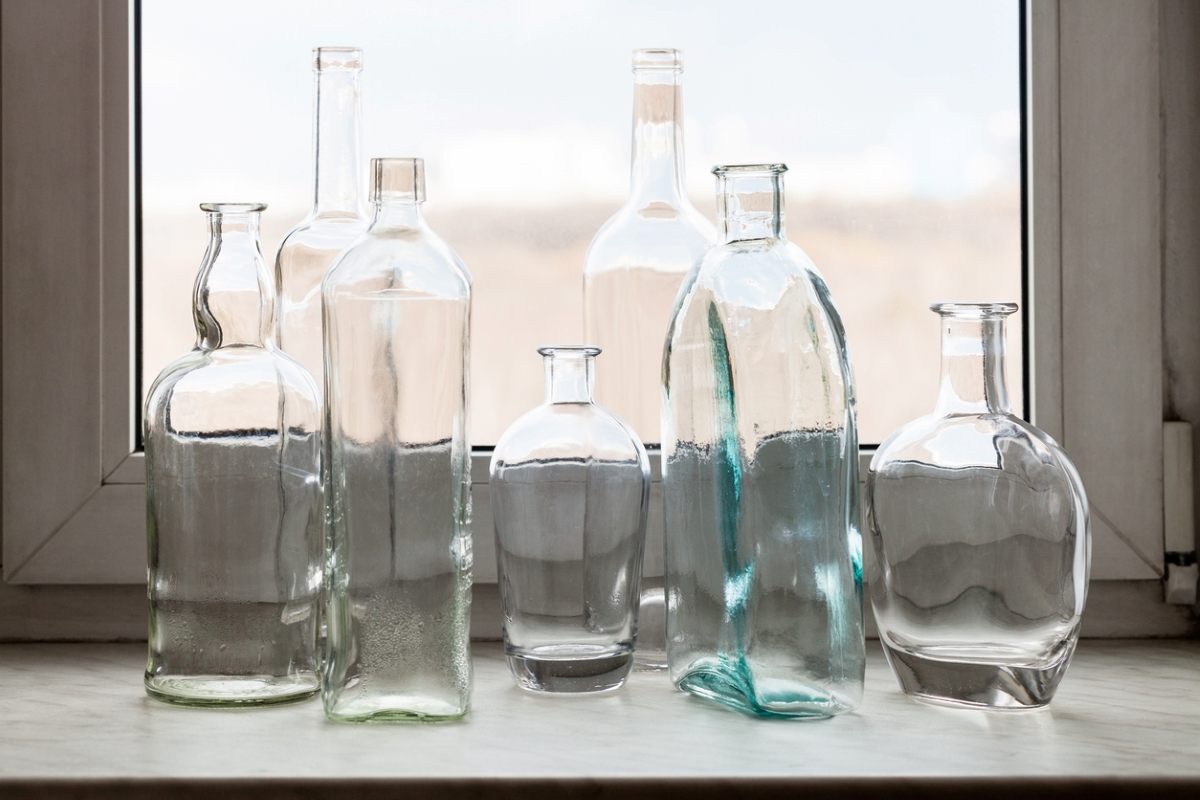
Photo: istockphoto.com
Although narrow-necked bottles can be upcycled for a number of DIY projects, you should never clean them in the dishwasher. It’s virtually impossible for the machine’s spray to get inside the tiny opening. Additionally, “They can trap water and detergent, creating a breeding ground for bacteria,” Lytvynova says. Instead, put a little warm water in the bottle, then add a squirt of dish soap and a spoonful of uncooked rice. Shake the bottle and the rice “scrubbers” will remove gunk from the sides and bottom.
Hand-Painted Glass and China
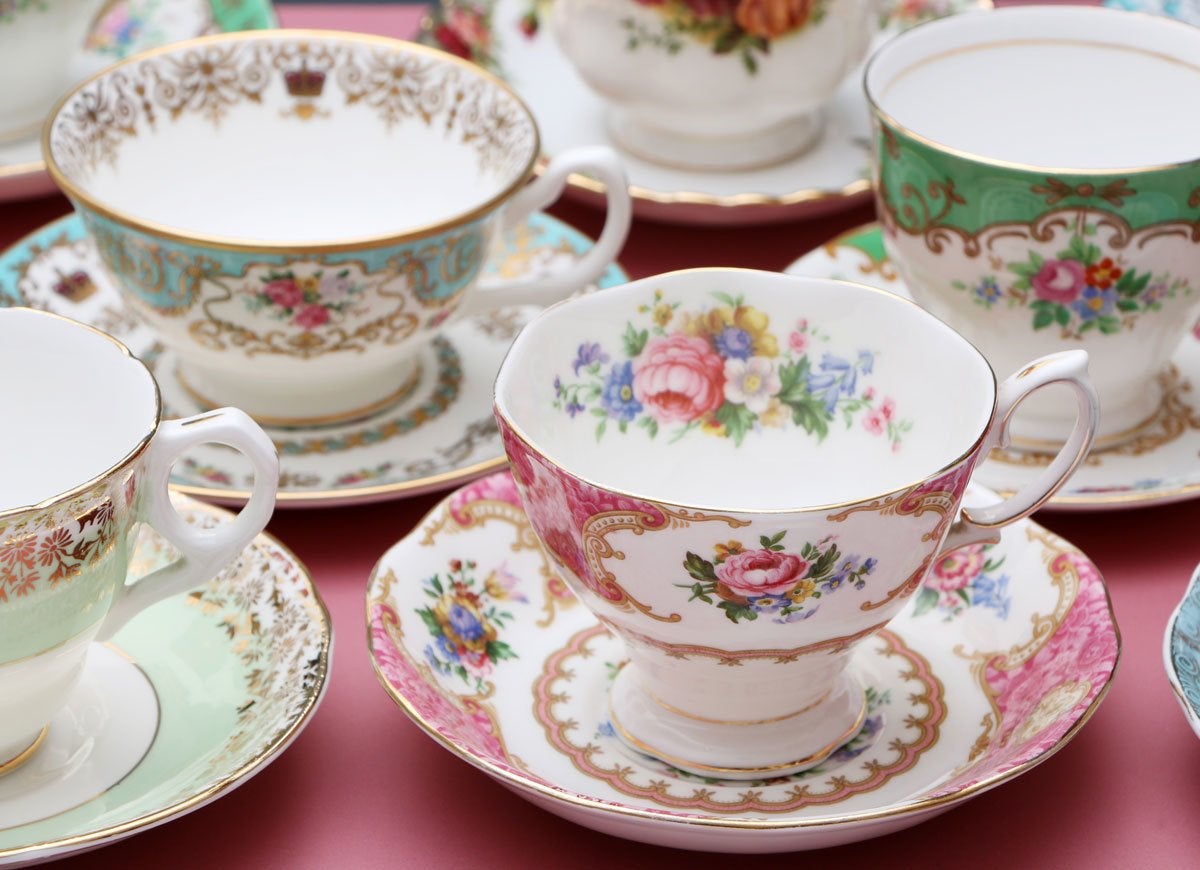
Photo: istockphoto.com
Neither the delicate hand-painted designs on the heirloom china your grandmother gave you as a wedding gift nor the gold filigree on your special-occasion dessert glasses can withstand the heat and harsh detergent of a dishwasher. To keep these cherished pieces in good condition, wash them by hand in gentle dishwashing liquid, then dry them off with a dish towel.
Wooden Items
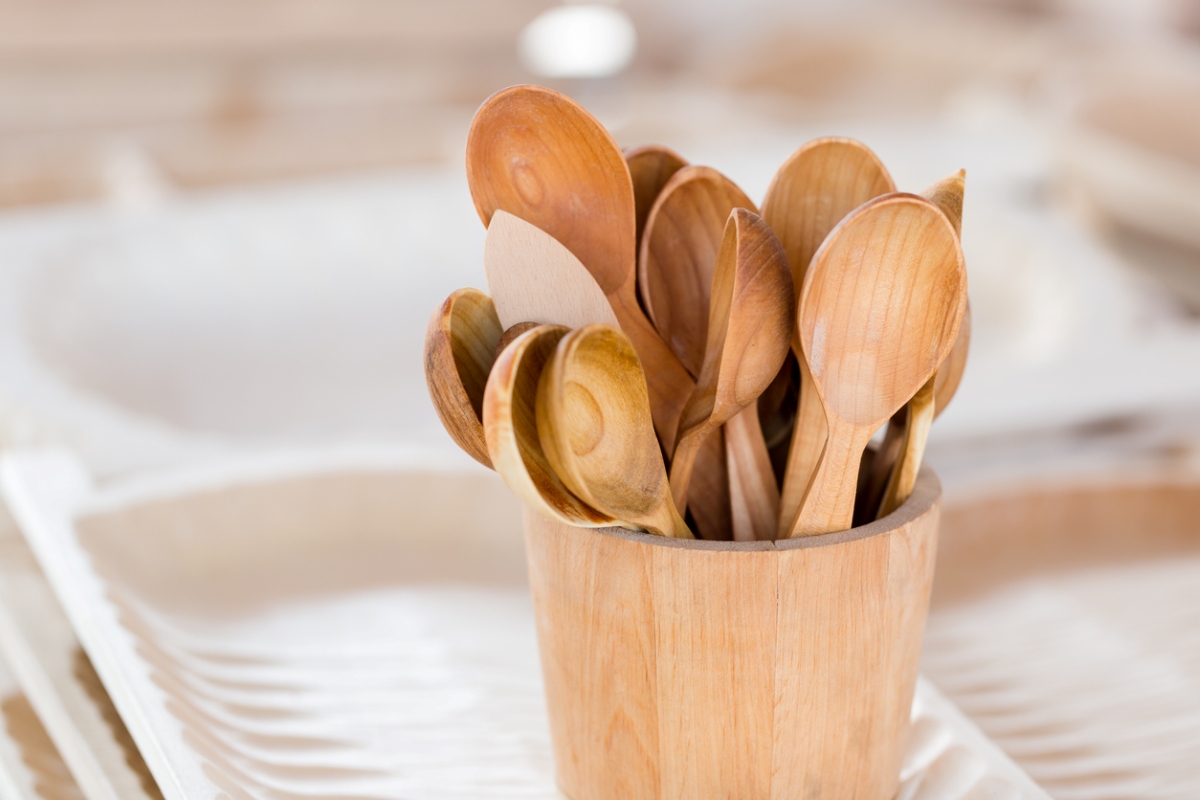
Photo: istockphoto.com
Wooden utensils can crack and warp in the dishwasher because prolonged exposure to water and detergent dries out the wood grain. To clean a wooden cutting board or utensils, sprinkle a little baking soda on the surface and scrub lightly to remove stuck-on food residue.
Unseasoned Cast-Iron Cookware
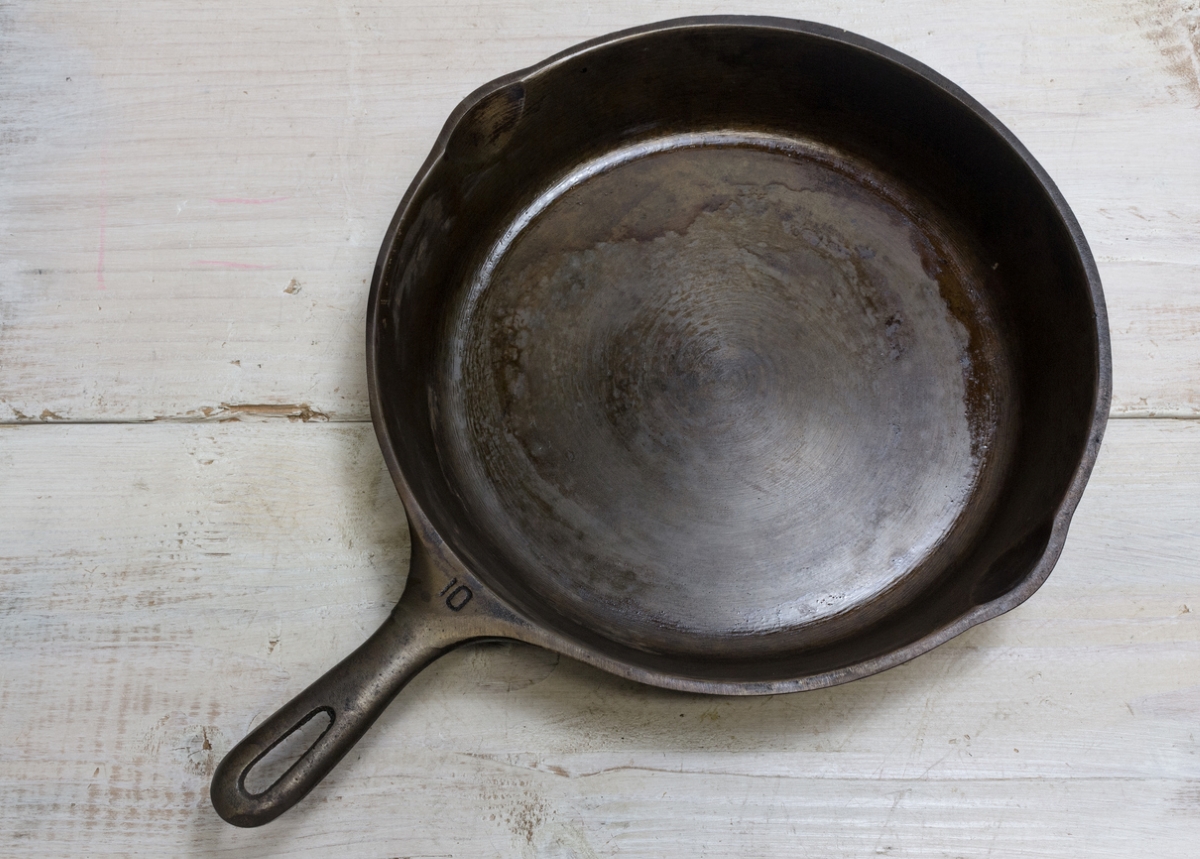
Photo: istockphoto.com
“Certain materials like cast iron can take a hit in [the dishwasher]. They might lose their seasoning or even crack under the heat and pressure,” Lytvynova says. After a run through the dishwasher, your cast-iron skillet will likely be coated in residue or marred by corrosion. Uncoated cast iron is prone to “flash rust,” corrosion that occurs rapidly during the dishwasher’s drying or cool-down cycle. Instead, clean cast-iron pots and pans by hand, and dry them immediately afterward with a dish towel to prevent rust.
Graters and Garlic Presses
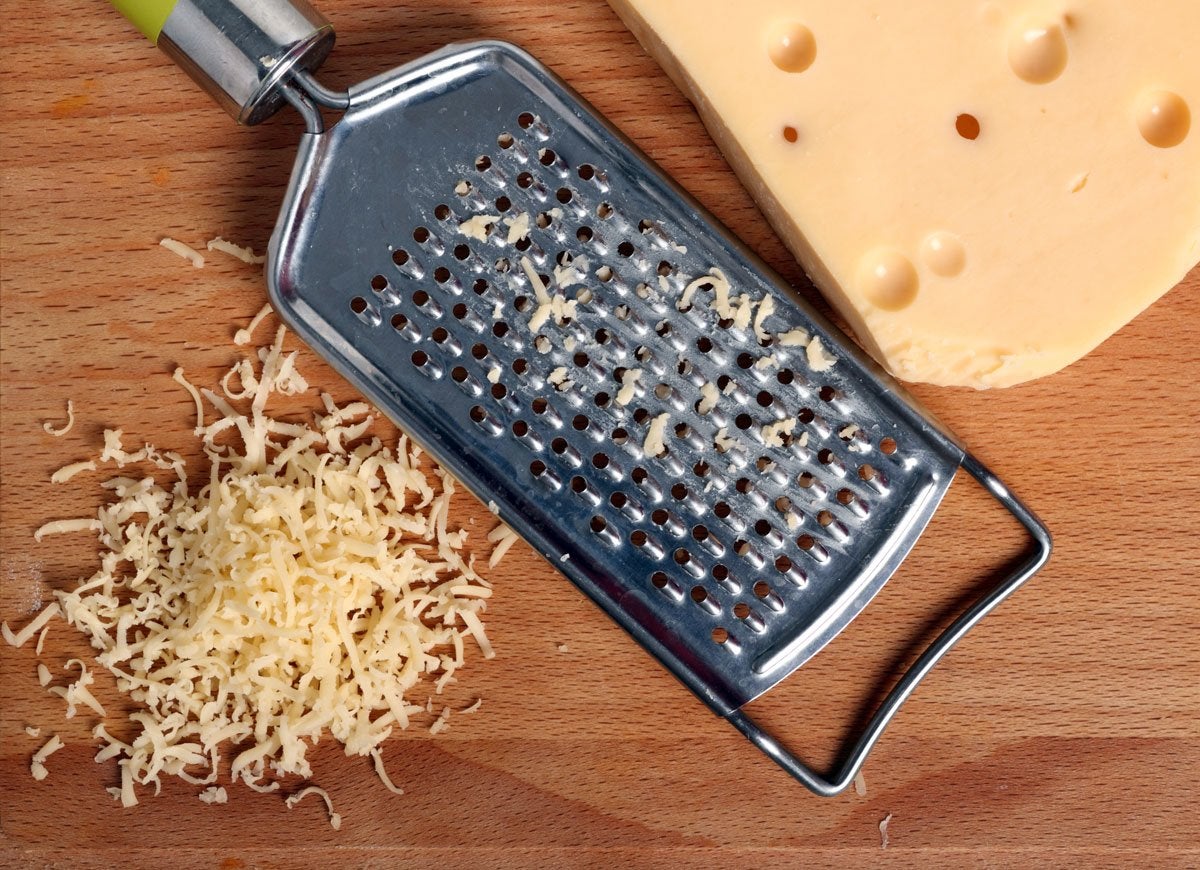
Photo: istockphoto.com
The tiny holes in graters and garlic presses trap bits of finely chopped food that your dishwasher simply can’t remove. To clean these utensils, wash them or soak them right after use. Keep a dish brush handy to scrub food particles out of the holes in the grater.
Recycled Plastic Food Containers

Photo: istockphoto.com
Tubs that hold things like cottage cheese or spreadable margarine are great for storing leftovers, but they turn into a twisted plastic mess after a cycle in the dishwasher. The thin plastic simply can’t withstand high temperatures. If you want to reuse these containers, wash them by hand and dry them on the dish rack.
Copper Pans and Utensils
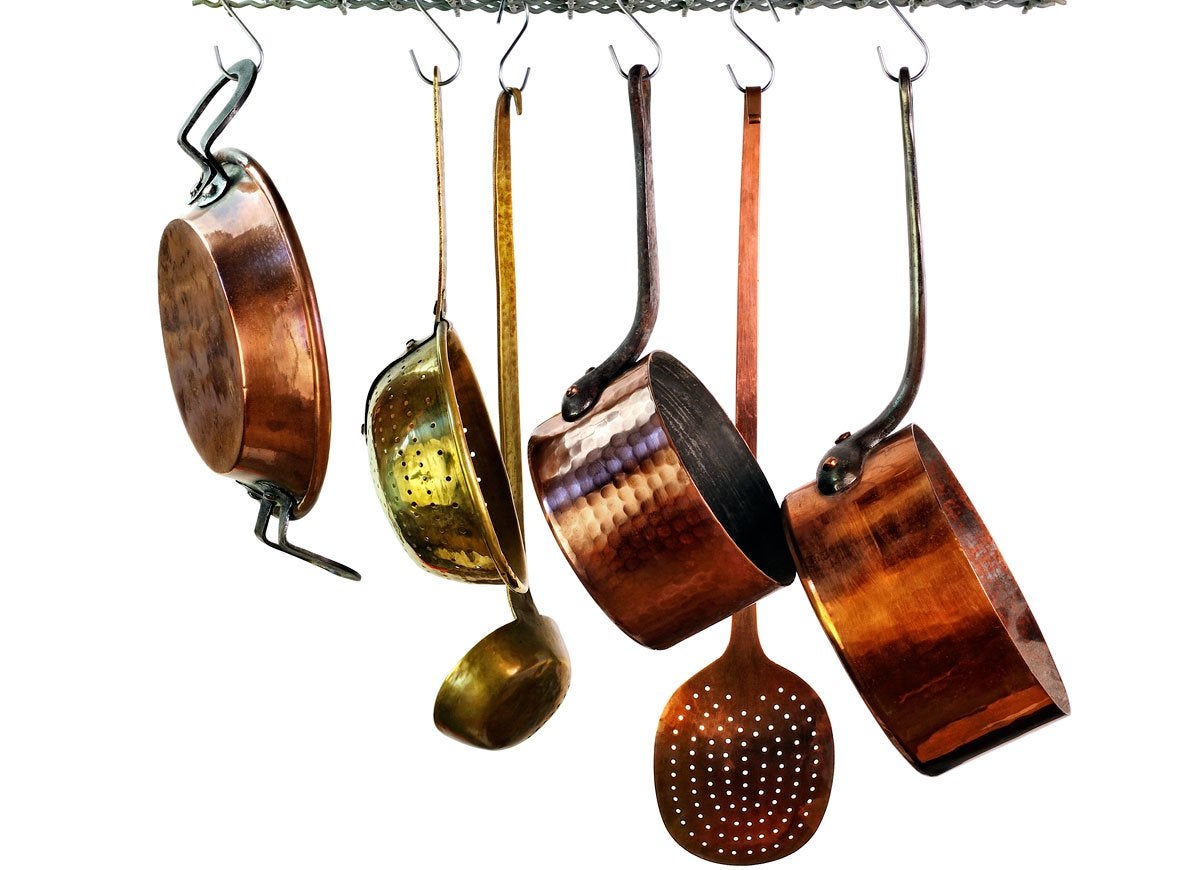
Photo: istockphoto.com
With its superior heat conduction, copper is a favorite of accomplished kitchen chefs, but this high-end material deserves some TLC that your dishwasher can’t provide. Clean copper pots and pans by hand to keep them from becoming dull and discolored. To remove occasional tarnish, spread a little ketchup on the copper surface and let it sit for 15 minutes before wiping it off and washing the pan.
Crystal Stemware
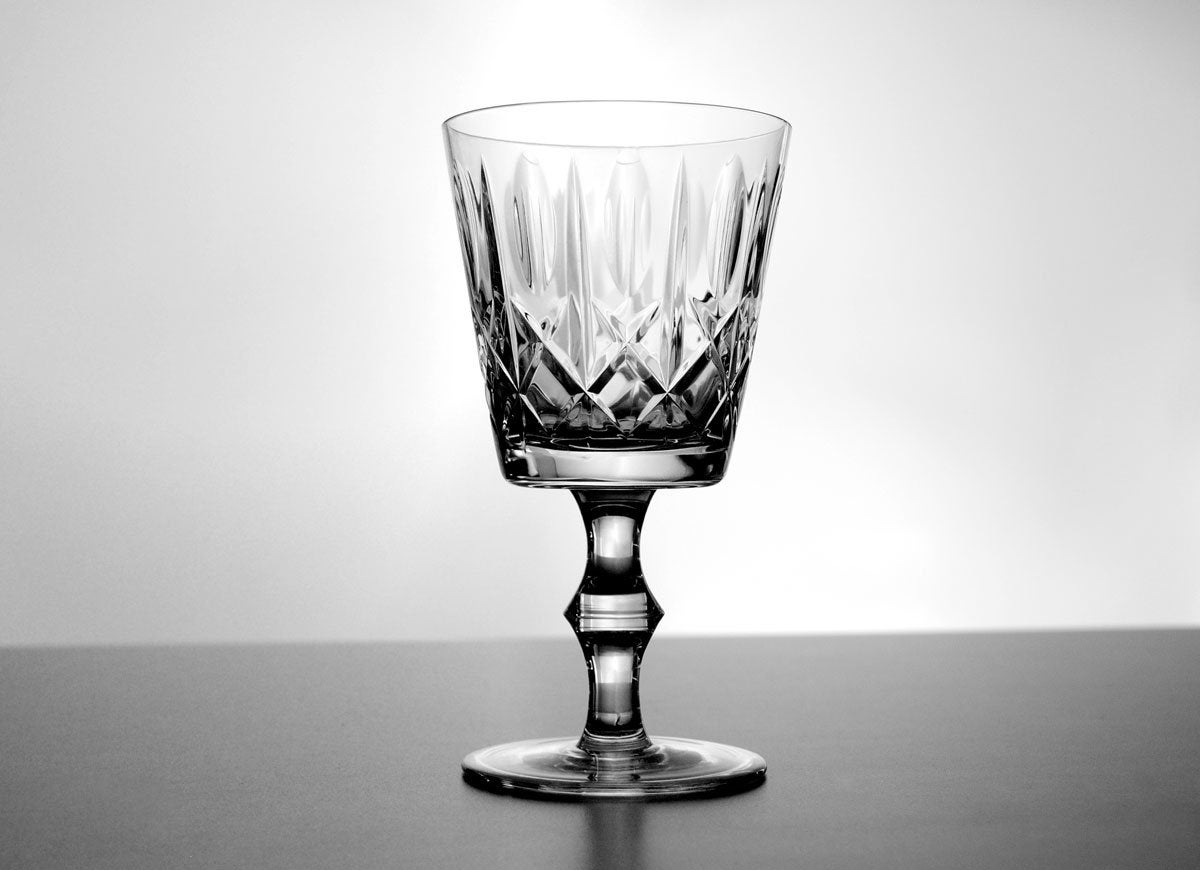
Photo: istockphoto.com
Your stunning crystal Champagne flutes contain lead oxide, which gives them clarity and brilliance. Unfortunately, the alkali in dishwasher detergent can leave those same brilliant flutes dull, hazed, or permanently etched. Always wash crystal stemware by hand—and if you want it to have an extra-clear appearance, gently rub it with a soft dishrag dipped in vinegar.
Rubber
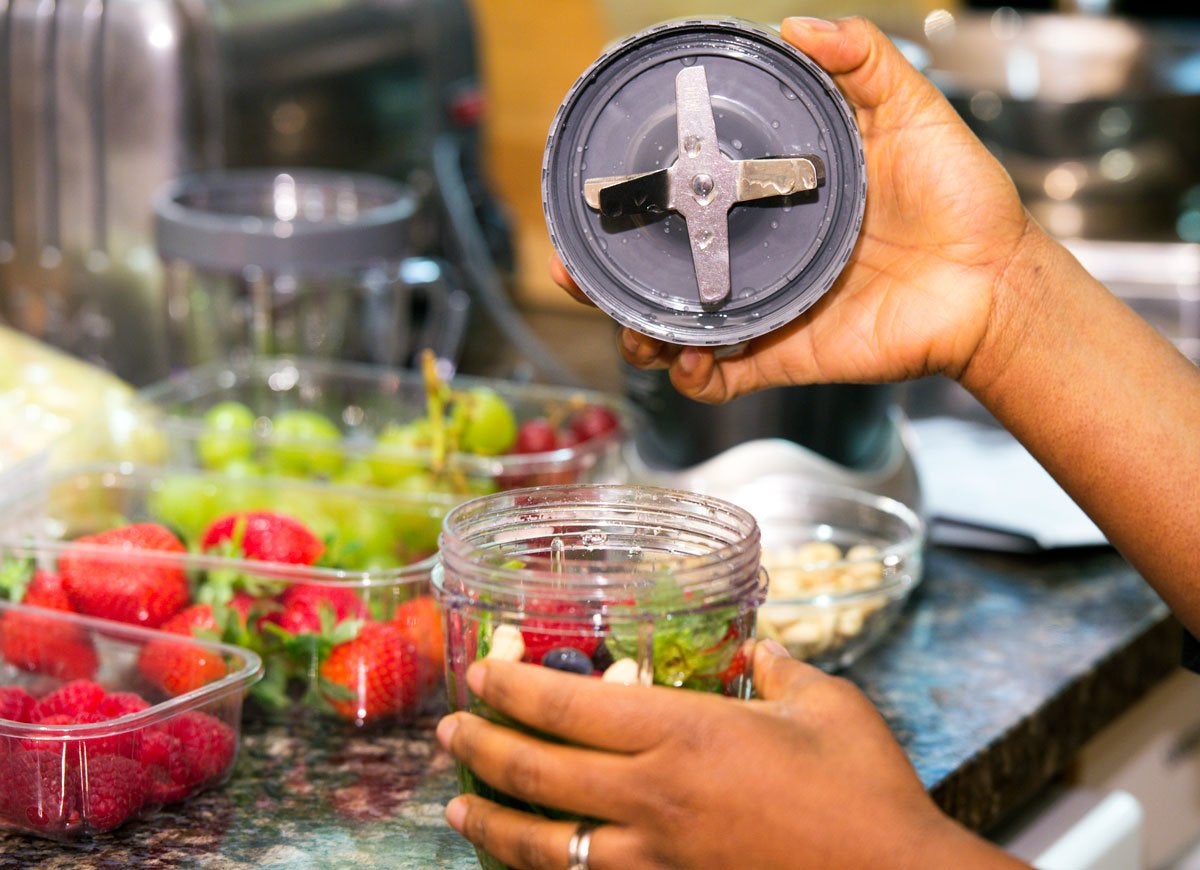
Photo: istockphoto.com
Collapsible rubber food containers make storage a snap, but harsh dishwasher detergent will dull and degrade them over time. Hand-wash all rubber items to keep them in pristine shape.
Nonstick Pans
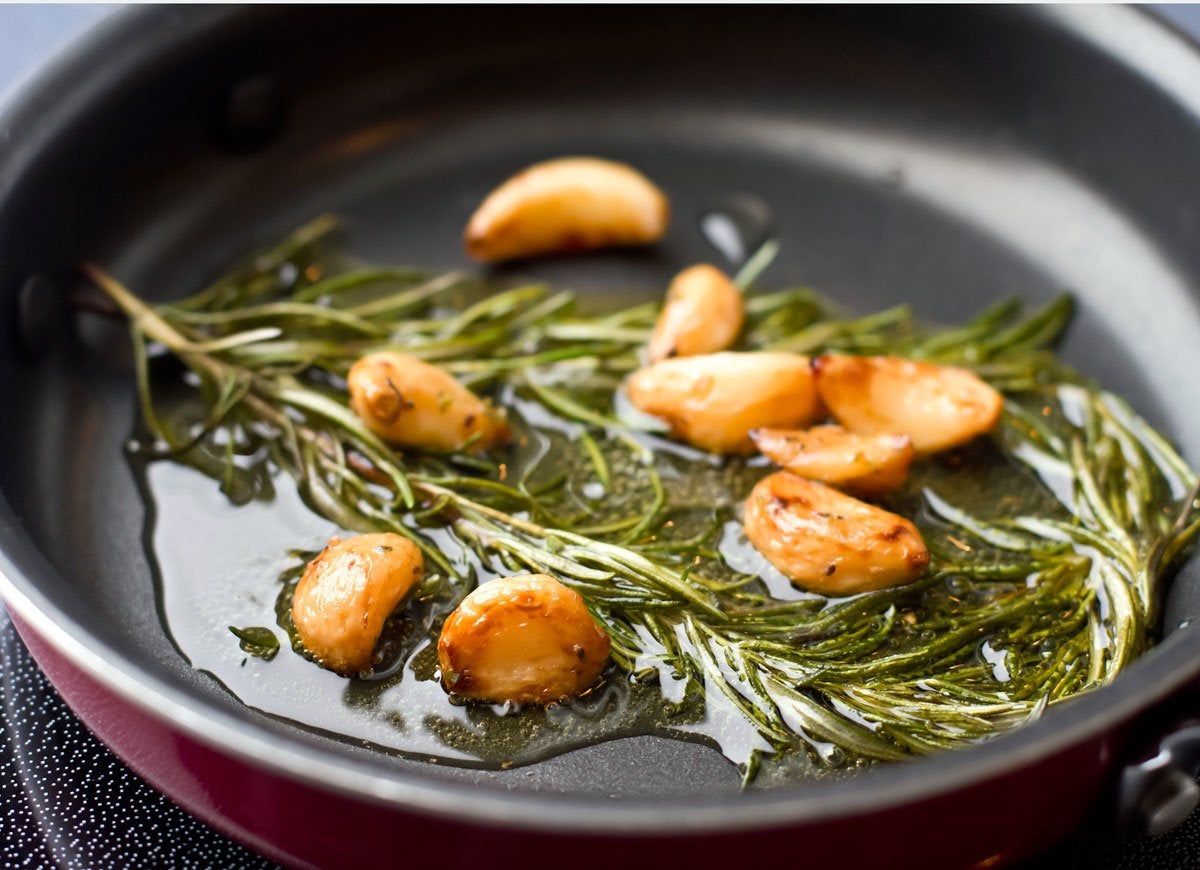
Photo: istockphoto.com
To make your nonstick cookware last longer, take the time to wash each pot and pan by hand. Harsh dishwasher detergents find their way into the tiniest nicks, degrading the underlying metal and shortening the life of your pans and skillets. Also take care to use non-scratch spatulas and spoons while cooking to protect the surface of nonstick cookware.
Jars With Adhesive Labels
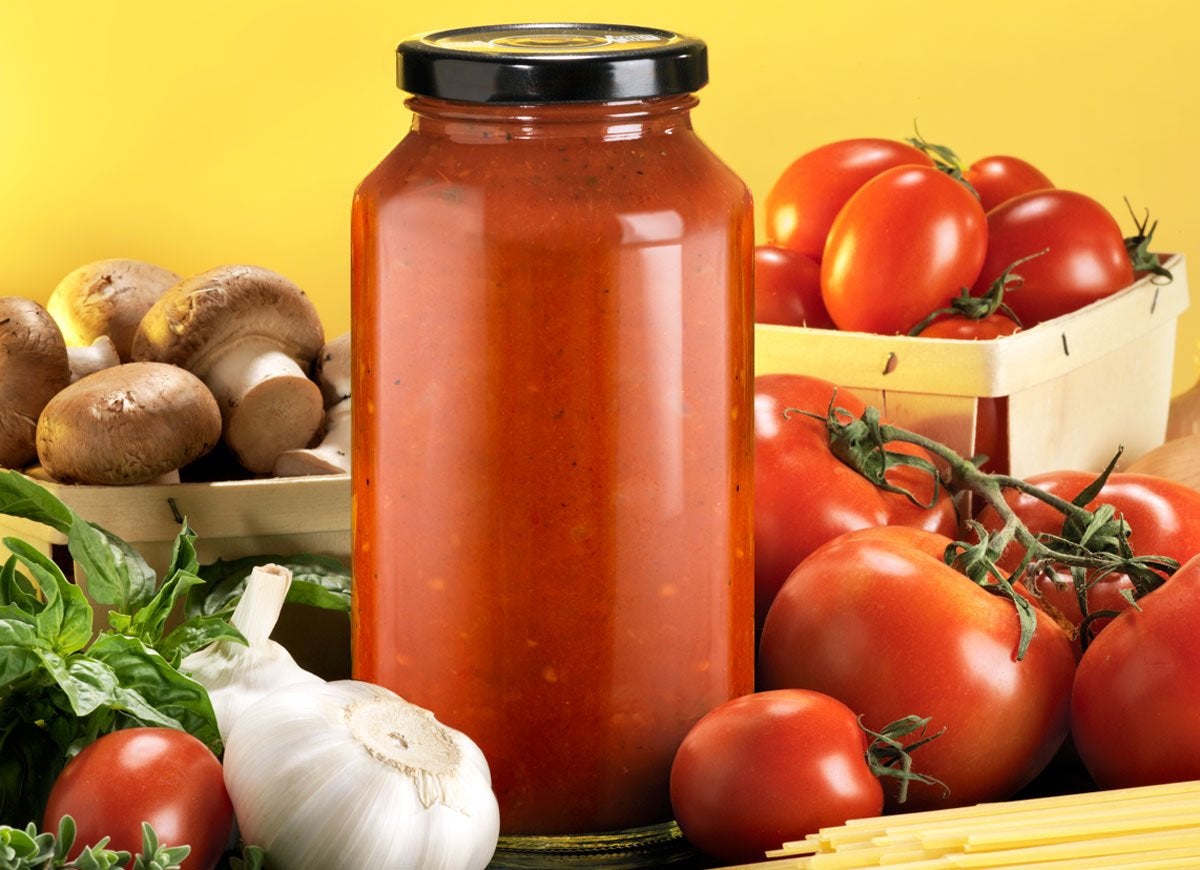
Photo: istockphoto.com
If you reuse your glass food jars, be sure to remove the adhesive labels before putting them in the dishwasher. The labels can clog your machine’s drain, reducing its cleaning efficiency and potentially requiring a technician to fix the problem. Keep a bottle of nail polish remover or Goo Gone handy to remove labels from jars before washing them.
Stand Mixer Accessories
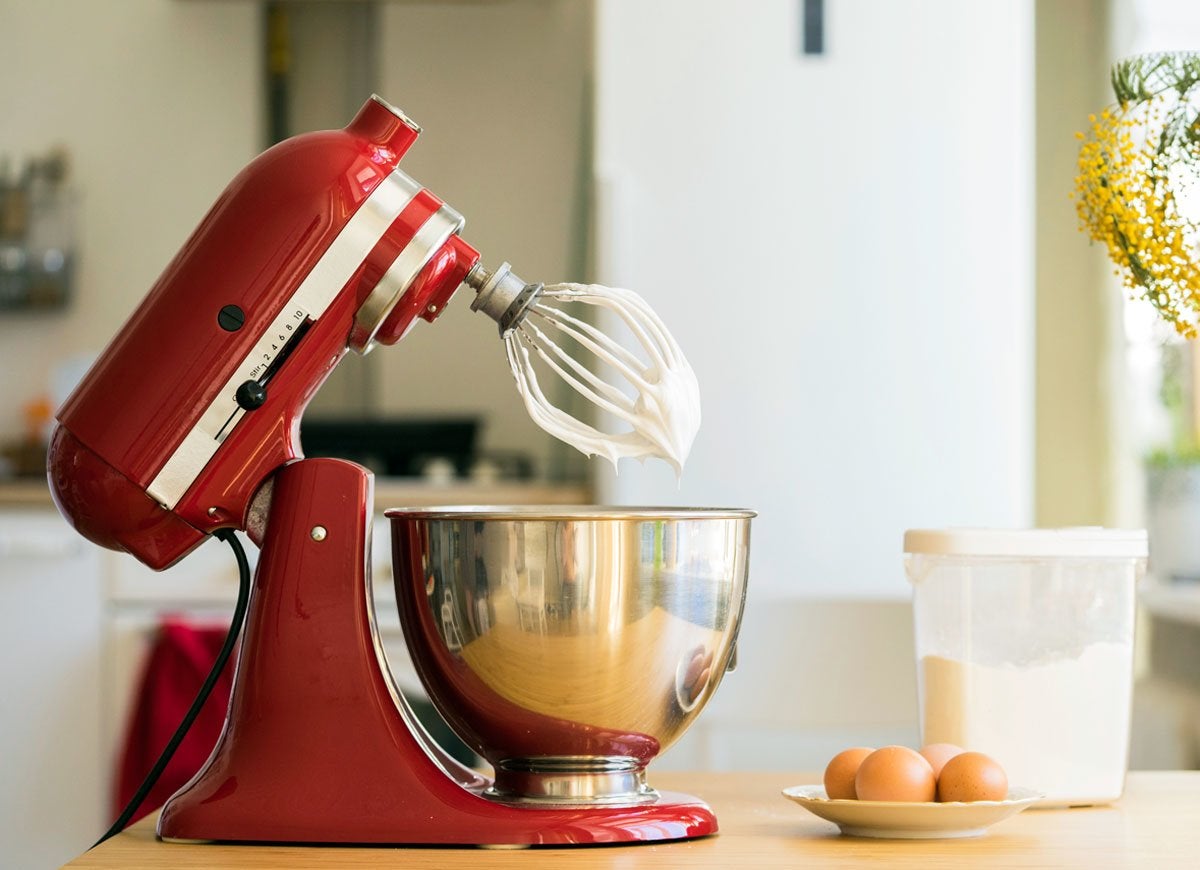
Photo: istockphoto.com
Don’t risk putting your stand mixer’s paddle, whisk, or dough hook in the dishwasher, unless the owner’s manual says that the items are dishwasher safe. Many stand mixer attachments have a coating that can degrade with repeated contact with detergent.
Aluminum Cookware

Photo: istockphoto.com
Putting aluminum cookware in your dishwasher is another no-go. High water pressure, heat, and detergent can strip away any nonstick or protective coatings, which can lessen the effectiveness of the cookware over time and even cause health issues if you use it.
Insulated Travel Mugs
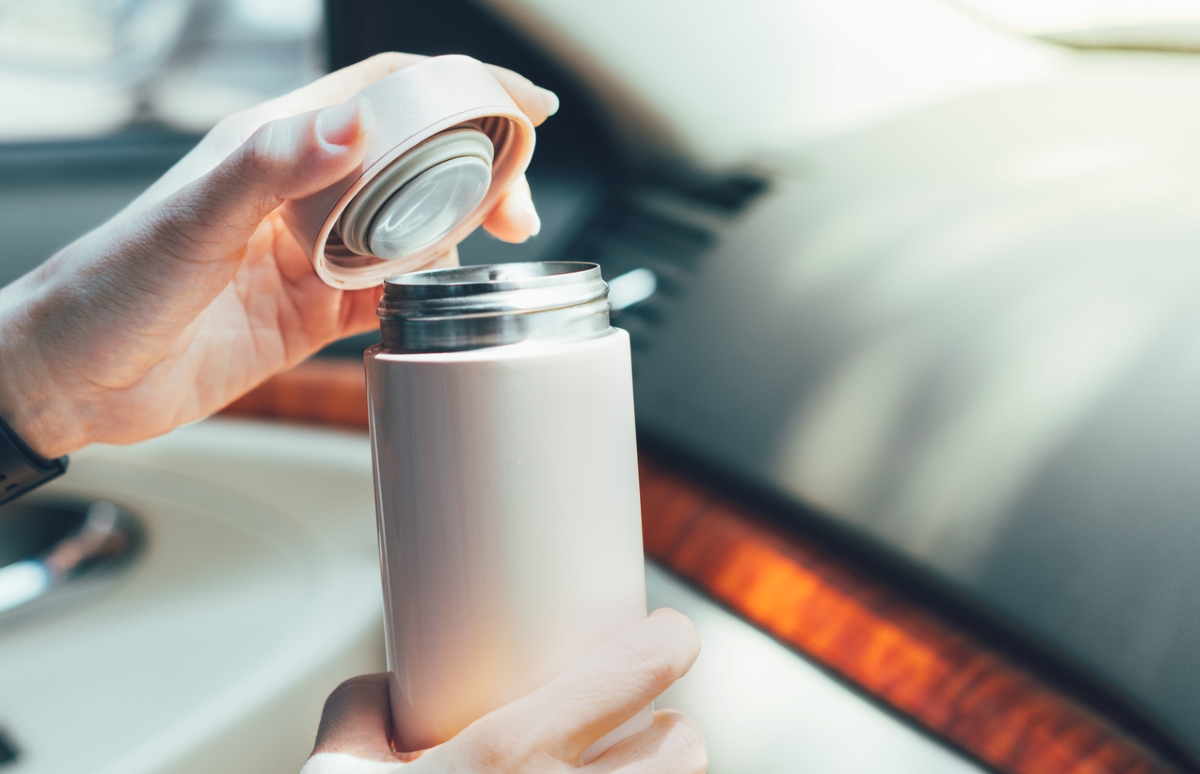
Photo: istockphoto.com
If you love to take your morning coffee to go, soap your travel mug up by hand the night before rather than washing it in the dishwasher. The dishwasher’s high temperature can damage the seals on your cup, and thus compromise the cup’s insulating properties.
Blenders
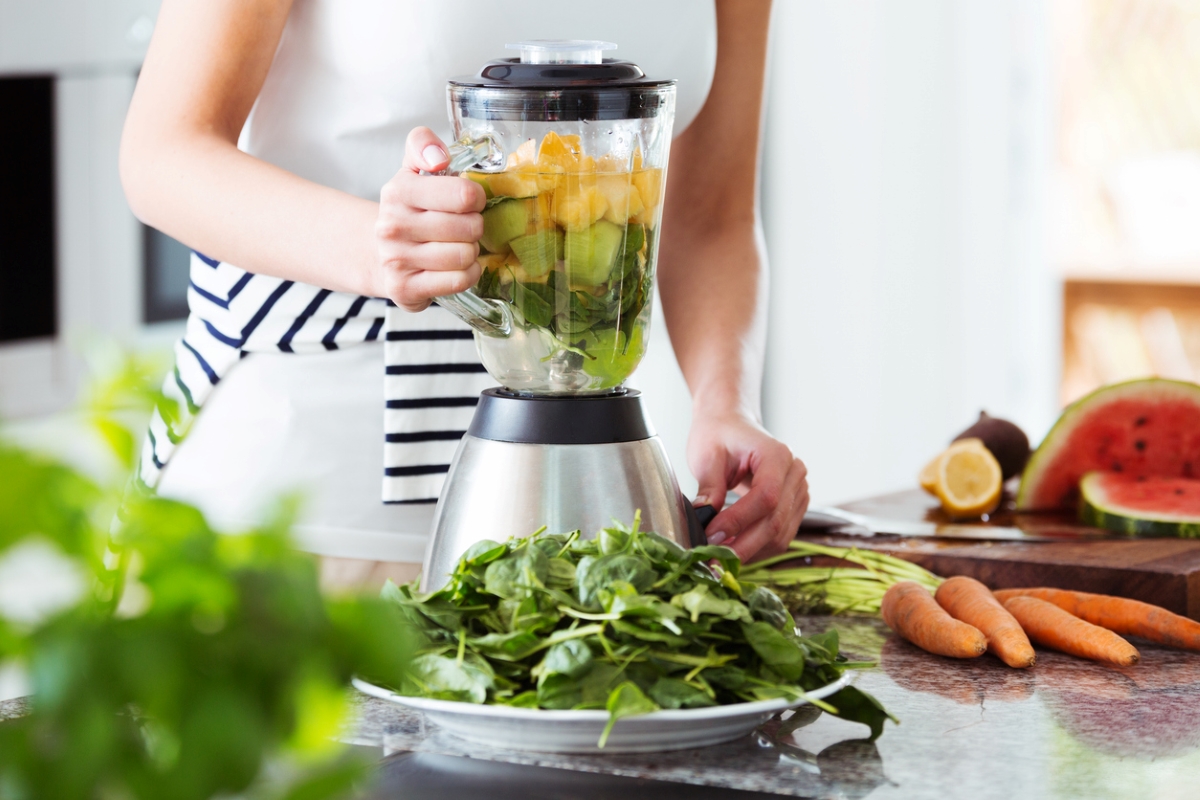
Photo: istockphoto.com
A dishwasher’s high temperatures and strong water pressure of the dishwasher can damage the blender’s motor, blades, and electrical parts. Always hand wash all parts of your blender to ensure that it chops and pureés for many years to come.
Mason Jar Lids
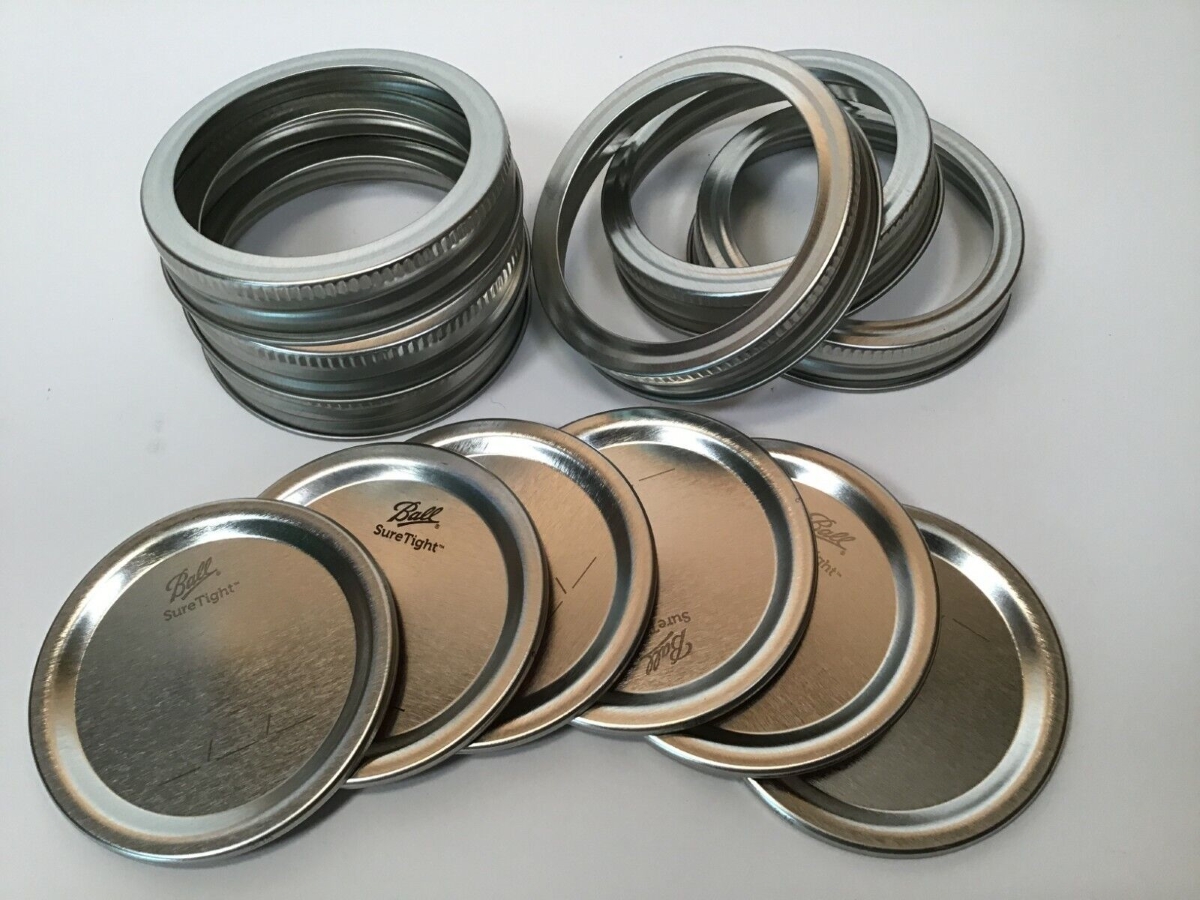
Photo: ebay.com
Mason jars? Dishwasher safe. Mason jar lids? Not so much. That’s because they typically consist of a metal ring with a thin, flexible seal that’s made of rubber. When exposed to hot temperatures in the dishwasher, the rubber seals can break, and lose their ability to seal. Getting the metal lids wet can rust them, too.
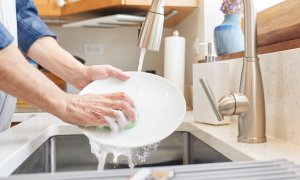
I Made This One Smart Investment to Ensure My Plumbing and Appliances Last Longer
When I replaced my 15-year-old water softener, I did not anticipate exactly how much more efficient and intuitive this new model from Culligan would be.